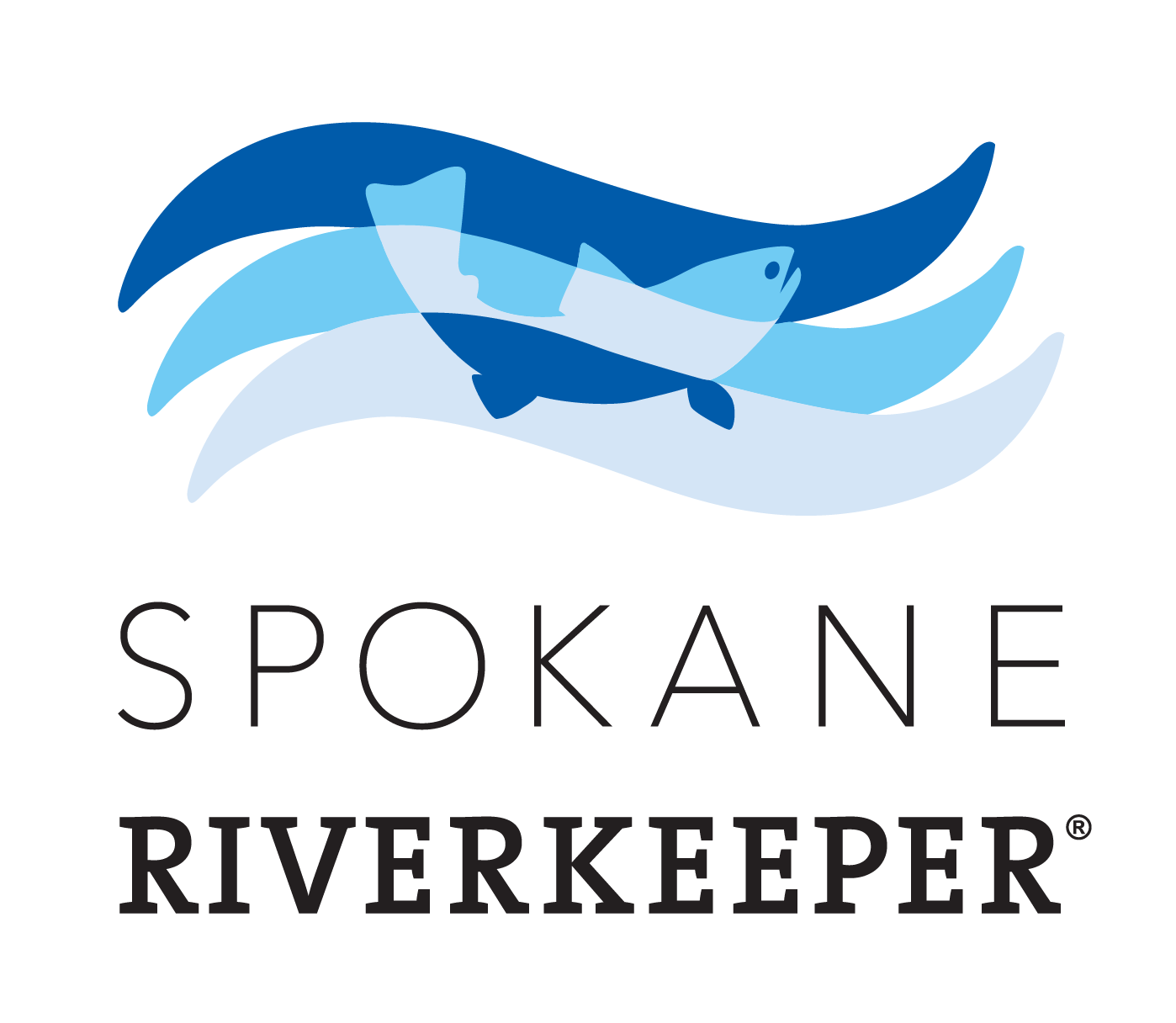Riverkeeper Mission and Programs
The Spokane Riverkeeper is a nonprofit dedicated to protecting the Spokane River. One of our programs is dedicated to cleaning the river of litter. In 2018 the Riverkeeper used 500 volunteers to help clean up 20,000 lbs. of trash along the river.
Although recreationalists, stormwater, historic dumps and wind events contribute to the trash issue, the majority of this trash originates from the homeless population that camp along the bank of the Spokane River. In many cases, these campers would like to clean up the trash they create, although the remote nature of their camps and sheer volume of their litter make cleanup difficult. A consistent and frequent on-the-water presence that asks campers to bag their litter and then removes it for them is needed to reduce the impacts of litter to the river.
Figure 1. an abandoned homeless camp along the Spokane River.
Program Details
In the summer of 2019 the Spokane Riverkeeper received approximately $1500 to fund an on-the-river presence for homeless outreach and litter pick up. This program was modeled after the Russian Riverkeeper’s Clean River Alliance in Northern California. The Spokane Riverkeeper partnered with Spokane Neighborhood Action Partners (SNAP) and Frontier Behavioral Health on homeless outreach. The Spokane Riverkeeper rowed SNAP and Frontier Behavioral Health employees to hard to reach camps along the river to offer wellness checks to homeless campers.
Figure 2. SNAP and Frontier Behavioral Health floated the river with the Spokane Riverkeeper on outreach trips to homeless campers along the river.
During these communications the Riverkeeper asked campers to bag their trash, which would be removed at a later date. During the seven weeks of funded on-water time the Riverkeeper floated approximately 50 river miles, talked with approximately 30 homeless individuals, made note of approximately 40 camps, and collected 2440 lbs. of trash. The Riverkeeper floated from Redband Park to TJ Menach bridge most consistently, although the Riverkeeper also floated the Harvard Road to Plants Ferry section, and the Upriver Dam to Downtown section.
Figure 3. Main sections of river floated for homeless outreach with SNAP and Fronteir Behavioral Health.
It should be noted that historically the lower section of the Spokane River from Redband Park to TJ Menach bridge has had much higher rates of homeless camping. In 2019 there were consistently 1 or 2 camps along the lower Spokane, whereas in 2018 there were consistently 15-20 camps along the same section.
Discussion
One of the larger takeaways from the 2019 homeless outreach and litter pickup program is the connection between homeless campers and litter in and along the river. When interacting with river users the Riverkeeper consistently received reports that the amount of litter along the river was less than historical amounts. One of the main goals of the program was to encourage homeless campers to bag trash for collection at a later date. In each instance where contact was made with homeless and bags were distributed an effort was made by the camper to bag trash, due to the fact that full trash bags were found in following weeks by the Riverkeeper.
Figure 4. Collecting the garbage from a camp along the river. A homeless camper bagged the trash, which we then removed via our boat.
Conclusions
As a first-year pilot this program should be considered a success. Throughout the summer adjustments were made to the program as the Riverkeeper reacted to homeless camping that varied from historical norms. Although this may have led to fewer contacts with homeless campers, the contacts that the Riverkeeper experienced were positive and successful. Contacts with homeless along the river have led to both reductions in litter and connections to resources.
The Riverkeeper has determined in order to have a significant impact on litter along and in the river the two heaviest impacted sections of the river, Redband Park to TJ Menach, and Upriver Dam to Downtown, should be floated each week, with the occasional float on other less impacted sections of the river. A consistent on the river presence is an effective way to access hard to reach homeless camps and cleanup litter on floatable sections of the river.





